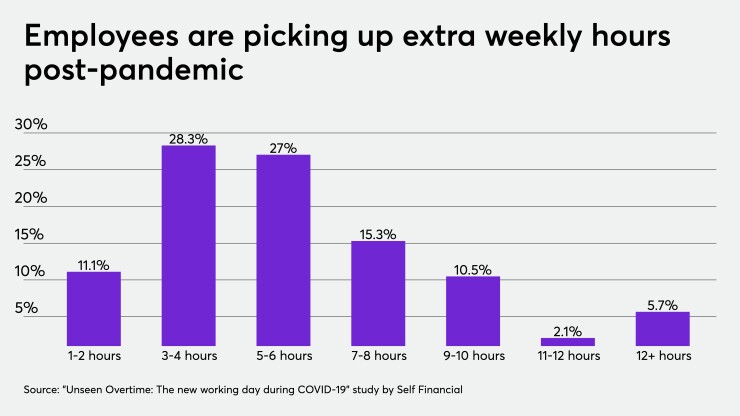Since 2020, the workforce has had to adapt to a new normal. But a year and a half later, that new normal is leaving pockets bare, and employees overworked.
Twenty-seven percent of the employed population are working an extra 5-6 hours a week to keep up with pandemic demands, according to
The uptick comes down to two critical factors, according to Nela Richardson, chief economist at ADP.
“First the global workforce was understandably concerned about their jobs after so much loss,” Richardson says. “Second, workers had to take on more responsibilities because there was a downsizing in their colleagues so there was a real increase in workload.”
Read more:
Forty-four percent of respondents said that work was taking longer when working from home. Of those respondents, 35% said they were working extra hours to use as leverage for a pay raise, 33% said they had taken on extra responsibilities from fired employees and 18% cited an increase in childcare responsibilities.
“It's not sustainable — working for free as a long-term strategy,” Richardson says. “It's not in the interest of the American workforce.”
Twenty percent of employees aren’t expecting to receive any additional pay for this additional work, but the impact of that unpaid overtime is more than purely fiscal.
Read more:
Burnout is the
As a result, businesses have begun rolling out initiatives targeting the rapid decline in their workforce’s mental health — 94% of managers have
“Companies are becoming more and more concerned about the health of their workforce — both physical and mental,” Richardson says. “Balance is going to be an important part of the transition.”






